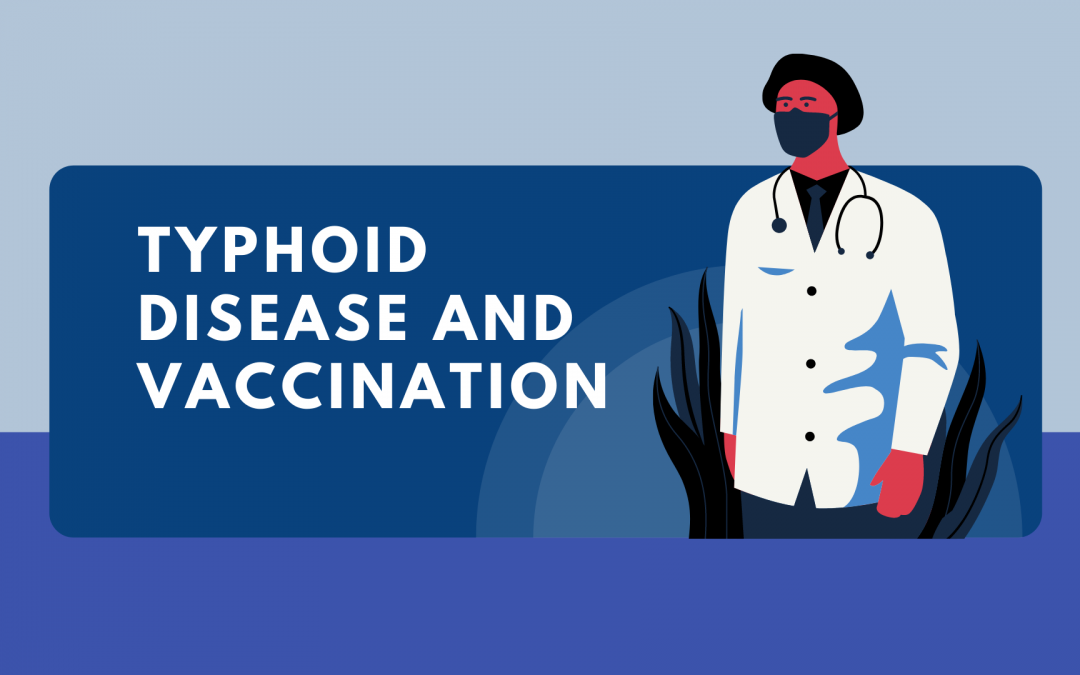KUALA LUMPUR, 2 April 2021 – Food Handlers are called to be Safe, Clean, Hygienic and Typhoid Vaccinated – AOEMM Kicks Off Health Education Campaign Ahead of Ramadhan Month.
The COVID-19 pandemic has led to the birth of countless online community food delivery groups and a new way of making a living. In recognizing this, the Academy of Occupational and Environmental Medicine Malaysia (AOEMM), in partnership with Facebook (FB) Group CARING MOMS, has launched a health education campaign ahead of the month of Ramadhan. Themed Healthy Food Handlers, Food Safety Assured (Pengendali Sihat, Makanan Selamat), the campaign calls for all homegrown food handlers to focus on the safe, clean, and hygienic preparation and delivery of food, and to vaccinate against typhoid disease to ensure public confidence in the food being consumed by themselves and their families.
According to Associate Professor Dr. Marzuki bin Isahak, AOEMM Council Member and Consultant Public Health & Occupational Health Physician, Social and Preventive Medicine Department, Faculty of Medicine, University of Malaya (UM), the Healthy Food Handlers, Food Safety Assured (Pengendali Sihat, Makanan Selamat) campaign is based on Malaysia’s Food Act 1983 that protects the public against health hazards in preparation, sale, and use of food and the Food Hygiene Regulations 2009 that emphasizes regulations related to food handlers.
“Whilst it is important that our food handlers are mindful in practicing good personal hygiene and sanitation such as the good habit of hand-washing with soap, it is equally critical that they are vaccinated against typhoid,” said Associate Professor Dr. Marzuki, also experienced as an Auditor for Food Safety Audit in University Malaya Medical Centre (UMMC) food premises in 2018. “This vaccine preventable disease (VPD) is an acute illness that is highly contagious and infectious.”
Associate Professor Dr. Marzuki said the AOEMM saw the urgency for a health education program given the advent of numerous first-time home-based food delivery businesses, created by savvy food handlers in a short timeframe, as a result of the Covid-19 pandemic challenges. “It is admirable the variety of online homegrown food businesses that have surfaced today,” he said. “However, many first-time food handlers may not be aware of the dangers and severity of the typhoid disease.
“Homegrown food handlers must realize that it is their responsibility to protect themselves and their consumers by proactively vaccinating against typhoid, in particular ahead of the month of Ramadhan where food bazaars will bring together huge numbers of our population. In such an environment, the spread of typhoid could occur if preventative measures are not taken.”
Dr. Anza Binti Elias, another AOEMM Council Member and Public Health Medicine Specialist (Occupational Health), Twin Towers Medical Centre, KLCC said: “Vaccination against typhoid is a requirement by law for home-based food businesses because it strengthens their customers’ confidence that the food they purchase has been prepared under safe and hygienic terms.”
Dr. Anza, also formerly a Public Health Medicine Specialist with the Ministry of Health (MoH) until 2012, shared step-by-step suggestions for first-timers to be responsible food handlers as follows:
- Register via MoH Food Safety and Quality Division’s (FSQD) Food Safety Information of Malaysia (FOSIM).
- Follow the FSQD’s Food Handlers Course basic hygiene requirements in the preparation, handling, and distribution of food.
- Go to your Doctor/GP OR Municipal with Typhoid Injection Units/Unit Suntikan. Vaccinate early. Vaccinate now!
If you have previously vaccinated against Typhoid, re-vaccination is required every 3 years.
FB Group CARING MOMS has long been a strong advocate for proper food handling training for food entrepreneurs promoting their businesses via Jobs for CARING MOMS and CARING MOMS on FB. “We strongly believe in the safe, hygienic preparation and delivery of food, and will continue to encourage CARING MOMS members and followers to attend the MoH-approved food handlers courses and to vaccinate against typhoid,” said Shera Ann Bosco, founder, and admin of CARING MOMS.
About the Typhoid Disease and Vaccination
Typhoid is a systemic infection caused by a highly virulent and invasive bacteria called S. Typhi (Salmonella Typhi), usually through ingestion of contaminated food or water. Symptoms include fever, fatigue, headache, nausea, abdominal pain, constipation, diarrhea, and rash. 1-4% of patients infected with S. typhi are chronic, asymptomatic carriers. Asymptomatic carriers can act as reservoirs for S. typhi bacteria in their intestinal tract and gall bladder for months or years. Therefore, they are capable of spreading the disease to others without even realizing it. About 10-15% of patients infected with S. typhi develop severe forms of typhoid fever and they are more characterized by persistent high fever, abdominal discomfort, malaise, and headache. Most common life-threatening complications following typhoid fever include overwhelming infection, pneumonia, intestinal bleeding, and intestinal perforation.
The World Health Organization (WHO) announced in its Typhoid position paper in March 2018, endorsed by its Strategic Advisory Group of Experts (SAGE) that the global typhoid burden ranges from 11-21 million cases with approximately 128,000-161,000 deaths annually. The majority of cases occur in South/South East Asia (SEA) and sub-Saharan Africa, mainly affecting children and young adults.
According to The Burden of Typhoid Fever in Klang Valley Malaysia 2011-2015 study, most typhoid fever cases in Malaysia were observed among men (55.6%), individuals aged 21 to 30 years (27.6%), Malaysians (86.3%), and individuals of Malay ethnicity (52.1%). Despite rapid urbanization and development, local transmission of typhoid is still prevalent in Klang Valley (high at 78.9%). This makes it critical for public health practitioners to call for focused typhoid prevention to curb further typhoid infection in urban areas.
The unconjugated Vi polysaccharide (ViCPS) anti-typhoid vaccine licensed for use has been recommended by WHO since 2008 for the control of typhoid in endemic and epidemic settings. A single injection ensures active immunization and protection against typhoid fever in adults and children 2 years and above. Re-vaccination is required once every 3 years and immunity appears 1-3 weeks after injection.

